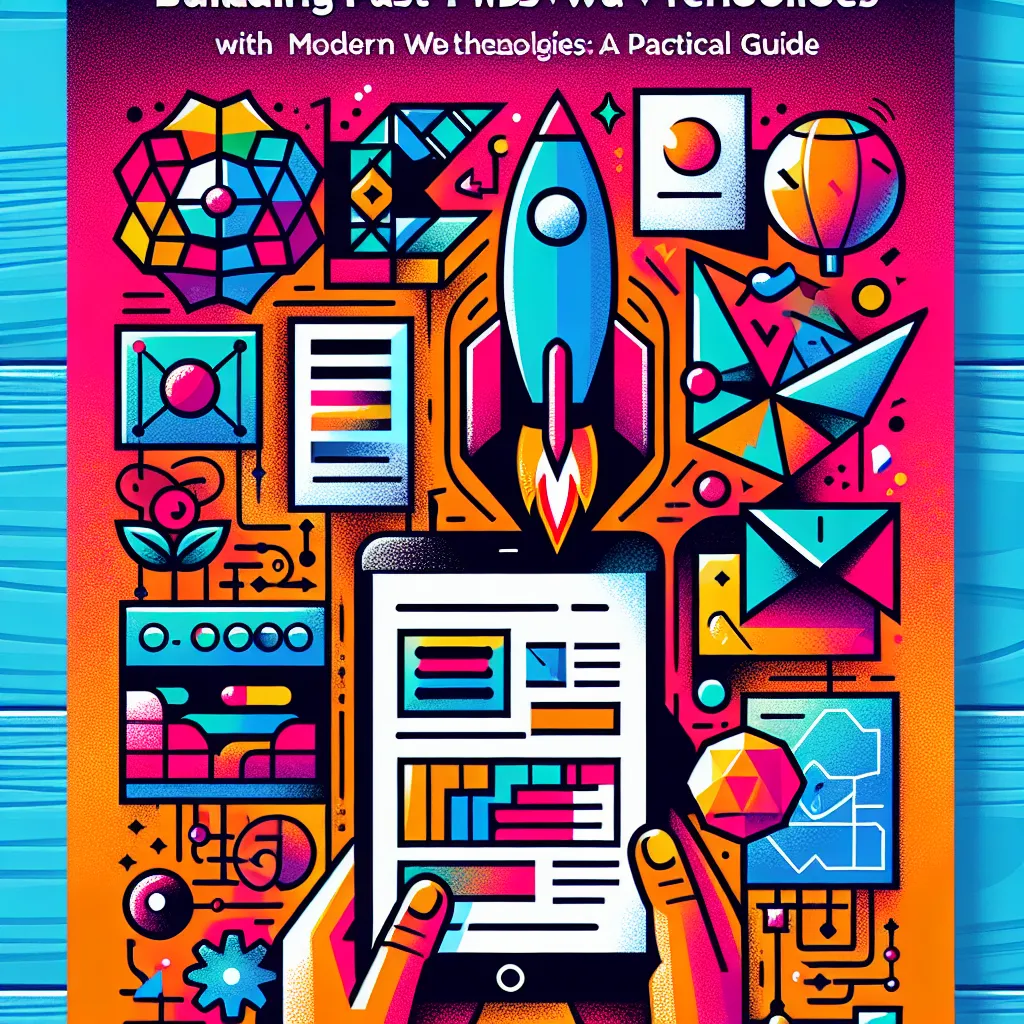Building Fast MVPs with Modern Web Technologies: A Practical Guide
Building Fast MVPs with Modern Web Technologies: A Practical Guide

Building Fast MVPs with Modern Web Technologies: A Practical Guide
Bringing a product idea to life doesn’t have to take months or cost a fortune. In today's fast-paced tech environment, the race to validate and launch your Minimum Viable Product (MVP) means leveraging the right tools and strategies from day one. Whether you're a startup founder with a disruptive idea or a developer working with a lean product team, learning how to build fast, scalable MVPs can make all the difference.
In this guide, we’ll walk through the essentials of MVP development using modern web stacks including React, Node.js, Tailwind CSS, and other powerful tools to help you quickly ship and iterate on your product.
🔍 What is an MVP?
A Minimum Viable Product (MVP) is a stripped-down version of your product that has just enough features to attract early adopters and validate your business idea. It’s not about cutting corners—it's about efficiency and learning fast.
Key characteristics of an MVP:
- Solves the core user problem
- Built with minimal effort and cost
- Gathers insights and feedback from real users
🛠️ Choosing the Right Tools for MVP Development
Modern web development offers a myriad of choices. The goal is to select a stack that enables speed, simplicity, and scalability.
Here's a sample full stack for MVP development:
- Frontend: React, Tailwind CSS
- Backend: Node.js, Express
- Database: MongoDB, PostgreSQL
- Deployment: Vercel, Render, or Heroku
This stack is popular due to its ease of use, large community support, and flexibility.
📦 Frontend: React + Tailwind CSS
Why React?
React allows you to build rich user interfaces with reusable components. It’s backed by Facebook and has a huge ecosystem.
- Component-based architecture
- Rapid development with hooks
- Works well with REST and GraphQL APIs
Why Tailwind CSS?
Tailwind speeds up UI development with utility-first classes that allow for fast iteration without writing custom CSS from scratch.
npm install tailwindcss postcss autoprefixer npx tailwindcss init -p
With Tailwind, you can prototype stunning interfaces in minutes:
<button className="bg-blue-500 text-white px-4 py-2 rounded hover:bg-blue-600"> Get Started </button>
🔧 Backend: Node.js + Express
Node.js enables JavaScript on the server side—streamlining fullstack development. Express is a minimal framework that simplifies routing, middleware, and APIs.
npm init -y npm install express cors
Basic Express setup:
const express = require('express');
const cors = require('cors');
const app = express();
app.use(cors());
app.use(express.json());
app.get('/api/message', (req, res) => {
res.json({ message: 'Hello from the backend!' });
});
app.listen(5000, () => console.log('Server running on port 5000'));
🧠 Database Choices: MongoDB or PostgreSQL
MongoDB
NoSQL, document-based. Great for fast prototyping when your data schema may evolve.
- Flexible and easy to use
- Integrates seamlessly with Node.js via Mongoose
PostgreSQL
Relational. A better fit when you need strict schemas and complex querying logic.
- ACID-compliant
- Works well with Prisma ORM
🚀 Hosting & Deployment
Speed is key. Use platforms that support auto-deployment and continuous integration.
- Frontend: Vercel (perfect for React apps)
- Backend: Render, Heroku
- Database: Supabase or MongoDB Atlas
Set up CI/CD to auto-deploy from GitHub or GitLab so updates reach users quickly.
🔄 Iteration and User Feedback
Launching your MVP isn’t the finish line—it's the starting point. Track user behavior, collect feedback, and iterate rapidly.
Tools to track:
- Google Analytics / Plausible
- Hotjar / FullStory for heatmaps
- HubSpot / Intercom for user communication
Remember to build feedback loops into your product:
<form onSubmit={handleSubmitFeedback}>
<textarea value={feedback} onChange={e => setFeedback(e.target.value)}>
</textarea>
<button type="submit">Send Feedback</button>
</form>
🧩 Integrate Fast with APIs and Third-party Tools
Don’t reinvent the wheel. Leverage existing APIs and services to speed up development.
Examples:
- Auth: Firebase Auth, Auth0
- Payments: Stripe
- Email: SendGrid, Mailchimp
- Notifications: OneSignal
This modular approach reduces development time and allows you to focus on your app’s unique value.
⚡ Real-World Example: Building a Simple MVP
Let’s say you want to build an MVP for a job board where employers can post jobs and developers can apply.
- Core features:
- Employer sign-up/login
- Post a job form
- List all jobs
- Apply to job form for developers
Timeline:
- Day 1: Project setup (frontend + backend repo, hosting environment)
- Day 2: Auth + job post API
- Day 3-4: Frontend UI and testing
- Day 5: Deploy MVP and share with early users
With the right tools and agile processes, what used to take weeks can now be done in days.
🔚 Conclusion
Speed is more important than perfection when validating ideas. Focus on core features, gather early feedback, and iterate fast.
With powerful tools like React, Node.js, Tailwind CSS, and cloud platforms, you can build reliable, scalable MVPs faster than ever. Don’t wait for the perfect moment. Build it, test it, and refine it based on real-world use.
✅ Need expert help building your MVP? We specialize in lightning-fast web development and MVP launches.
🚀 Looking to launch your MVP in record time? We offer expert MVP development services tailored to your needs. Learn more about our MVP in 2 weeks service →